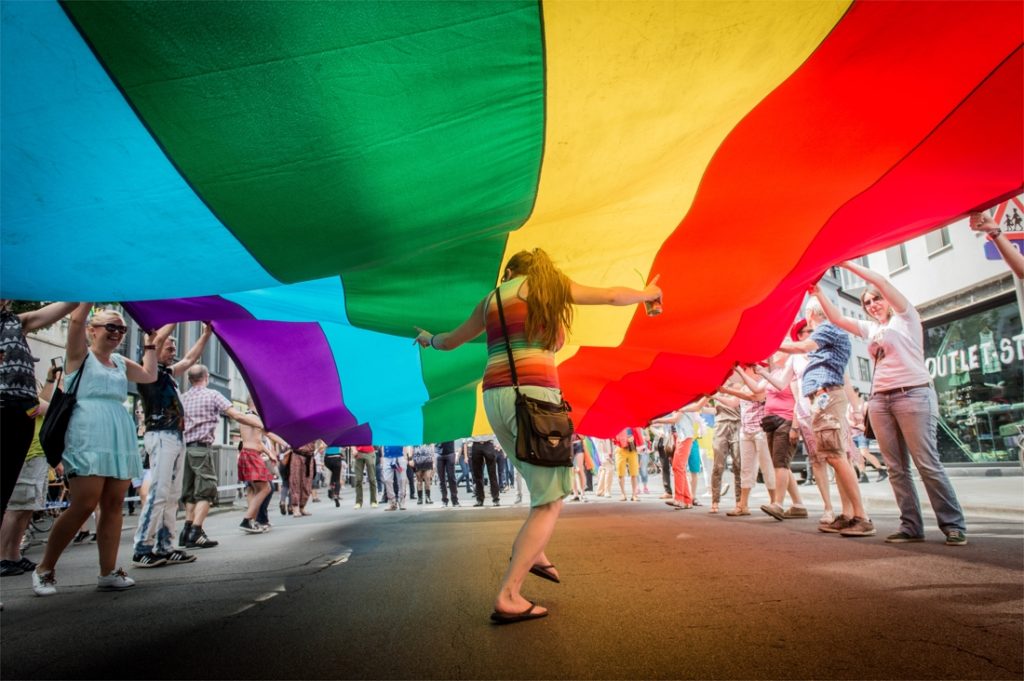In an era of Covid, life has been made more difficult for LGBT+ people worldwide.
Members of the community face domestic abuse and are trapped with hostile families. Authorities are using the pandemic as an excuse to target the most marginalized. In Hungary, it is now illegal to change gender identity, in the UK Boris Johnson has discarded plans to de-pathologize and allow gender self-identification, and the new leader of Poland has been elected on the back of promoting LGBT+-free zones.
It is a crime to be LGBT+ in over 70 countries, and still punishable by death in 12. In many countries, hate crimes against LGBT+ have increased, Gay refugees are re-traumatised when navigating degrading asylum systems, and trans people are subject to daily abuse, from all corners of society. Clearly work is still needed to achieve equality.
Gay pride could be an opportunity to draw attention to these issues, but in recent years it has been a subject of criticism for its commercialisation, 'selling its soul to rainbow-branded capitalism'. Due to activism of the gay community in recent decades, there was a shift towards greater acceptance for LGBT+ people, which big businesses ‘pounced on’.
Despite its commodification, pride parades give people a chance to feel comfortable with others in their community, particularly if they have not yet come out of the closet. Having spent a significant portion of life hiding one’s sexuality and self from the world, it can feel refreshing and comforting to see that value reflected in the market.
But who is really benefiting from this pinkwashing? In recent years, banks and other corporate sponsorships have taken centre stage in pride events and parades, brands are able to sell rainbow mugs and t-shirts, all the while gaining good publicity. The hollowness of their support for social justice has become apparent during Covid-19 restrictions, where several brands now appear quiet on the 'virtual pride' of 2020. This confirms the criticism that expressions of LGBT+ solidarity are only worth doing if profitable.
In fact, many corporations maintain strong ties with countries and regimes where LGBT+ people are persecuted. Corporate support does nothing to help gay people in concentration camps in Chechnya, or Trans people facing a prolific backlash in the mainstream media.
Not only this, but there are regressive consequences of the commodification of LGBT+ pride parades in the west. Reports on corporate social responsibility (CSR) from companies can often disguise issues of living wages and workers’ rights, when statistics suggest the most precarious and exploited workers tend to be queer, trans, and/or people of colour.
Of course there have been benefits from the mainstreaming in popular culture. But the changes have also promoted the idea that ‘individualised acts and performences of consumption are the answer’, which can lead to a lack of inter-movement solidarity with other causes, Often such visibility in the mainstream media, whilst it has increased, is characterized by middle class- white members of the LGBT+ community, those who do not threaten the status quo.
It is great that for some people at least, being ‘out’ at work has limited consequences for job security, protected by laws in place. But oppression continues to roll over many on a national and international level. The singular successes of some LGBT+ individuals will not create profound change. Only through striving for coalition with other groups will collective liberation take place.
Simply remembering LGBT+ history shows this to be achievable. The roots of Pride in the US began with Black and Latino trans women fighting against police oppression and state-sponsored violence towards LGBT+ people. Or in the UK, where transformative change for LGBT+ issues took place because of solidarity between their community and that of the striking miners.
Black Trans Live Matters marches highlights an alternative of how pride can return to its previous model of protest, working to change society and recognising that the fight for equal rights should not happen in isolation from other movements.
This summer is the first where many pride parades have been cancelled (physically at least). Taking place online, for the first time, discussions and debate have underpinned the pride of 2020.
Although the importance of the public space of the street cannot be underestimated, this could also be a chance for pride to transform and re-politicise. When it is back to its offline form, festivities remain but protest returns. Through this the LGBT+ community can reclaim itself back from the highest bidder.
Hannah Robinson

